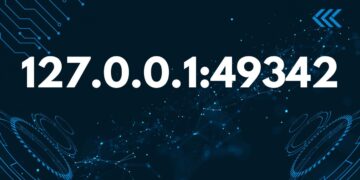The final exam for the Algorithm Master course at Pace University is a defining milestone for students in computer science and related disciplines. This rigorous examination assesses the theoretical and practical understanding of algorithmic concepts, challenging students to demonstrate their ability to solve complex computational problems. For those taking this test, thorough preparation and a solid understanding of algorithmic principles are essential. In this comprehensive guide, we delve into the specifics of the Pace University Algorithm Master Final Exam Questions, shedding light on what to expect and how to succeed.
The exam is designed to evaluate students on various levels, from their grasp of foundational topics to their ability to implement advanced algorithmic solutions. It is not merely about rote learning but emphasizes the application of concepts in solving real-world problems. This distinction makes the exam a true test of analytical skills and problem-solving abilities, setting it apart as a significant academic challenge.
Structure of the Exam

The Pace University Algorithm Master Final Exam Questions are crafted to cover a broad spectrum of algorithmic topics. These questions are divided into theoretical and practical sections, ensuring that students have a well-rounded grasp of the subject. The theoretical part usually consists of multiple-choice or short-answer questions that test a student’s understanding of fundamental principles such as time complexity, algorithm efficiency, and computational limits. The practical section, on the other hand, requires students to write code to solve specific problems, often under timed conditions.
Students may encounter a variety of question types, ranging from conceptual explanations to hands-on coding challenges. For instance, they might be asked to analyze the performance of sorting algorithms like MergeSort or QuickSort, or they could be tasked with implementing a graph traversal algorithm like Depth-First Search. The diversity in question types ensures that students are well-prepared for real-world applications of algorithms in professional settings.
Key Topics Included
The content of the Pace University Algorithm Master Final Exam Questions is meticulously curated to reflect the key areas of algorithmic study. Topics often include sorting algorithms, graph theory, dynamic programming, recursion, and computational complexity. These topics are not only foundational to the field of computer science but are also integral to solving practical problems in software development, data science, and artificial intelligence.
Sorting algorithms, for example, form the backbone of many computational processes. Questions on this topic might require students to compare the efficiency of different algorithms or to implement sorting techniques for specific datasets. Similarly, graph theory questions often delve into traversals, shortest path calculations, and minimum spanning tree problems, testing a student’s ability to handle complex networked data structures. Dynamic programming and recursion are also staples of the exam, as they are essential for solving optimization problems and designing efficient solutions.
Importance of Practical Application

One of the distinguishing features of the Pace University Algorithm Master Final Exam is its emphasis on practical application. Unlike exams that focus solely on theoretical knowledge, this test challenges students to apply what they have learned in a hands-on manner. The coding section of the exam is particularly demanding, as it requires students to translate their understanding of algorithms into working programs.
This practical focus is crucial for preparing students for real-world challenges. In professional settings, algorithmic knowledge is often applied to optimize processes, solve computational problems, and develop efficient software solutions. By incorporating practical elements into the exam, Pace University ensures that its graduates are not only well-versed in theory but also capable of applying their skills effectively in the workplace.
Challenges Students Face
Preparing for the Pace University Algorithm Master Final Exam Questions can be an intimidating task for many students. The breadth of topics covered and the depth of understanding required can make the exam seem overwhelming. One of the most common challenges is time management, as students must allocate sufficient time to both theoretical and practical sections of the exam.
Another significant challenge is the complexity of the coding problems. These questions often require a deep understanding of algorithmic principles and the ability to implement them efficiently under timed conditions. For students who are less confident in their coding skills, this can be a particularly daunting aspect of the exam. However, with regular practice and a structured approach to problem-solving, these challenges can be overcome.
Preparation Strategies
Success in the Pace University Algorithm Master Final Exam Questions hinges on effective preparation. While there is no one-size-fits-all approach, certain strategies have proven to be highly effective for students. Revisiting class notes and textbooks is an essential first step, as these materials provide a solid foundation for understanding the topics covered in the exam. Practice is equally important, particularly for the coding section. By solving a variety of algorithmic problems on platforms like LeetCode and HackerRank, students can build the confidence and skills needed to tackle the exam.
Collaboration with peers can also be beneficial. Study groups provide an opportunity to discuss challenging concepts, share insights, and learn from one another’s strengths. Additionally, simulating exam conditions by practicing under timed settings can help students manage their time effectively and reduce anxiety on the day of the exam.
Role of Faculty Support
Faculty support plays a pivotal role in preparing students for the Pace University Algorithm Master Final Exam Questions. Professors and teaching assistants are invaluable resources for clarifying doubts, providing additional explanations, and offering guidance on complex topics. Many instructors also provide sample questions or practice exams, which can be immensely helpful for students in gauging their readiness and identifying areas for improvement.
Moreover, faculty members often emphasize the practical applications of algorithmic concepts, bridging the gap between theory and practice. This holistic approach not only prepares students for the exam but also equips them with the skills needed for professional success. By fostering a supportive learning environment, Pace University ensures that its students are well-prepared to excel in their algorithmic studies.
The Impact of Exam Success

Excelling in the Pace University Algorithm Master Final Exam Questions is more than just an academic achievement; it is a testament to a student’s analytical skills, problem-solving abilities, and dedication. Success in this exam often serves as a stepping stone to advanced studies or professional opportunities in the field of computer science.
Employers value candidates who have demonstrated a strong grasp of algorithmic concepts, as these skills are critical for roles in software development, data analysis, and artificial intelligence. By performing well in this exam, students can showcase their readiness for the challenges of the professional world, setting themselves apart as competent and capable individuals.
Insights from Alumni
Many alumni of Pace University have shared their experiences with the Algorithm Master final exam, highlighting the challenges they faced and the strategies that worked for them. Their insights provide valuable lessons for current students, emphasizing the importance of consistent practice, effective time management, and a thorough understanding of fundamental concepts.
One recurring theme in alumni feedback is the significance of approaching the exam with confidence. While the Pace University Algorithm Master Final Exam Questions are undoubtedly challenging, they are also an opportunity to demonstrate one’s skills and knowledge. By maintaining a positive mindset and staying focused, students can navigate the exam successfully and achieve their academic goals.
Conclusion
The Pace University Algorithm Master Final Exam Questions represent a critical juncture in the academic journey of computer science students. This challenging yet rewarding test serves as a comprehensive assessment of a student’s algorithmic knowledge and problem-solving skills. By preparing effectively and approaching the exam with confidence, students can not only excel in their studies but also lay a strong foundation for future success.
Through its rigorous curriculum and emphasis on practical application, Pace University ensures that its graduates are well-equipped to meet the demands of the ever-evolving field of computer science. The Algorithm Master final exam is more than just a test; it is a testament to the university’s commitment to academic excellence and professional readiness.
Frequently Asked Questions (FAQ)
1. What is the focus of the Pace University Algorithm Master Final Exam Questions?
- The exam focuses on evaluating both theoretical understanding and practical application of algorithmic concepts, including topics like sorting, graph theory, and dynamic programming.
2. How can I prepare for the coding section of the exam?
- Regular practice on platforms like LeetCode and HackerRank, along with revisiting class notes and textbooks, is essential for effective preparation.
3. What challenges do students face during the exam?
- Students often struggle with time management and the complexity of coding problems. Practice and strategic preparation can help overcome these challenges.
4. How does the exam benefit students in their careers?
- Excelling in the exam showcases a student’s problem-solving abilities and readiness for professional roles in software development, data analysis, and artificial intelligence.
5. What resources are available for exam preparation?
- Faculty support, class notes, textbooks, and online coding platforms are invaluable resources for preparing for the exam.


















